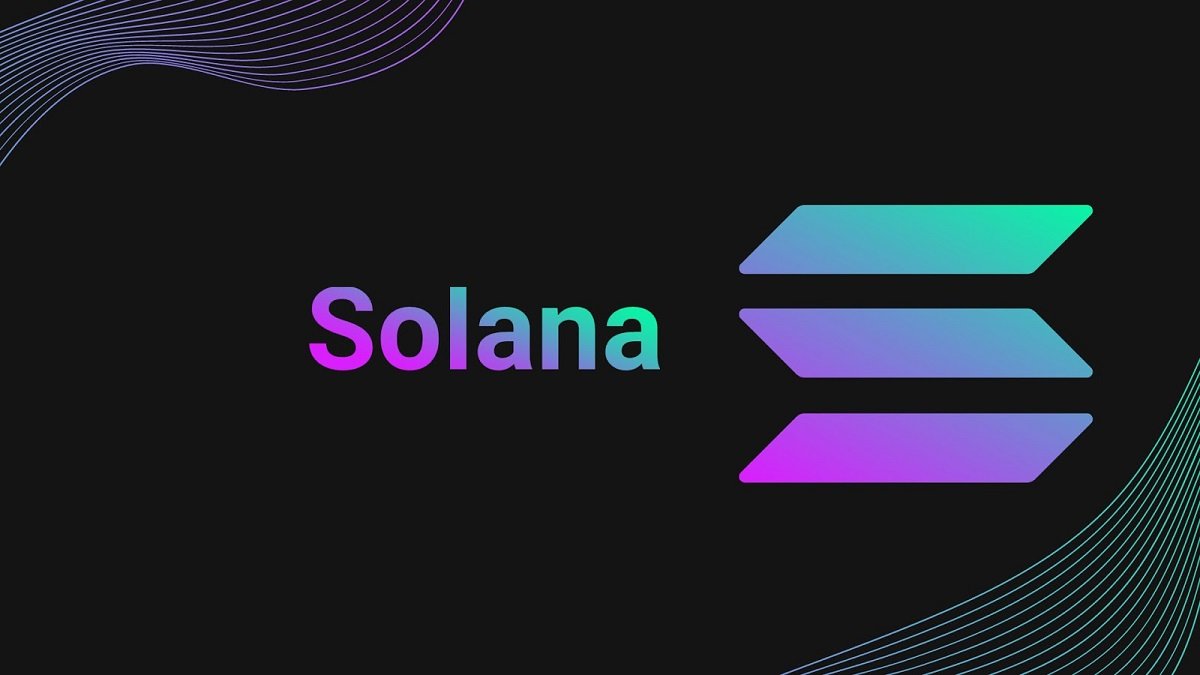
The company proudly announced that it stands among the pioneering major payment institutions to directly employ the Solana network for its settlement processes.
Solana, the new kid on the block, is expected to rock the blockchain world. The platform has advanced features that allow it to process 50,000 transactions per second.
Blockchain technology allows for decentralized transactions. But the technology we use to send cryptocurrencies is slow. Consider the Ethereum network, which can process around 15 transactions per second versus Visa's tens of thousands.
And this is what Solana wants to change. So, Solana?
Solana is a programmable blockchain that aims to be fast without losing its decentralisation. The network uses a novel proof-of-history mechanism. Tokens like SOL are used for transaction fees and can be staked. Solana directly competes with Ethereum.

World's first web scalable blockchain. Due to its unique architecture, the platform's permissionless blockchain can generate 50,000 TPS.
Solana is the fastest blockchain available. 8 core features (PoH, Tower BFT, Gulf Stream, Turbine, Sealevel, Pipelining, Cloudbreak, Archivers) allow for unheard of transaction speeds.
Solana uses a PoS consensus with Tower BFT.
The Tower BFT enforces proof-of-history, a universal time source. This gives the network a permanent reference. Don't confuse the network's permissionless clock (PoH) with consensus.
One of Solana's eight core innovations, proof-of-history is a decentralized clock that secures the blockchain. The permissionless clock is used by the tower BFT. Sealevel's transaction parallelization system allows smart contracts to run simultaneously on GPUs and SSDs.
The memory pool system (mempool) is a Gulf Stream feature. It helps forward transactions to validators before previous transactions are closed. This increases transaction speed.
In a nutshell, Solana’s processes function like this:
It's possible that you now wonder what apps can be used on the Solana network.
In the same way Ethereum can be used to make smart contracts, Solana can be used to make smart contracts, too. Decentralized applications (DApps) like NFT markets, DeFi games, and DEXs can be run on smart contracts. These applications are called DApps.
DEXs and lending apps are the most popular apps on Solana. If you want to use a stablecoin, like USD Coin, you can also use the network to wrap assets and make them stable. You can find the whole ecosystem of Solana here.
Related Video:

The company proudly announced that it stands among the pioneering major payment institutions to directly employ the Solana network for its settlement processes.

Both tokens experienced a 3% increase, with bitcoin and ether gaining up to 1.2%, and bnb (BNB) surged by 1%, demonstrating resilience against worries about potential risks spreading within the BNB Chain ecosystem.

Meme coins and low-cap cryptocurrencies continue to be the preferred choices for traders, while investors in Bitcoin eagerly await a prompt ETF decision.

Several analysts are asserting that the largest cryptocurrency, with a market cap surpassing $29,000, will persistently trade within a narrow range.

An innovative platform, launched just last week, aims to enhance the adoption of Bitcoin by enticing users through win-to-earn games operating entirely on the Bitcoin blockchain.

CRV experienced a significant surge of over 7.6% following the purchase of more than $2 million worth of the token by Justin Sun, the founder of the Tron blockchain. On the other hand, ETH and SOL maintained a slightly negative trend, despite witnessing some upward movement in the past few hours.

Market analysts are on the edge of their seats, awaiting the Fed's next strategic move or eagerly seeking a crystal-clear understanding of the ETF's future direction.

'Inflation and rate concerns could be what [has been] keeping crypto prices depressed,' said Noelle Acheson

Next week's U.S. central bank interest rate decision and the expiration of bitcoin options are not expected to cause significant market movements, as they have been stagnant for weeks.

The redemption plan for the protocol seems heavily biased towards benefiting employees and Parrot's venture investors.

Cryptocurrencies staged a partial recovery the day after Monday's market sell-off, which was triggered by the U.S. Securities and Exchange Commission's lawsuit against Binance and its classification of several altcoins as unregistered securities.

Although Ethereum remains the leading blockchain platform for minting NFTs, there has been a noteworthy surge in sales on smaller blockchain networks in recent weeks.

In both the weekly and daily time periods, Solana (SOL) has formed bullish patterns. If the patterns hold, a significant bullish reversal might occur.

The statement came during the high-profile and long-awaited minting that has captivated the Solana NFT community.

Even though Ethereum developers stated there will be no downtime, FTX decided to halt 'deposits and withdrawals until the Merge is concluded and networks are stable.'

Whitelisted accounts for the Solana-based project will have to wait another day to get their hands on the buzzy NFT collection.

According to Helium core developers, switching to Solana would increase network scalability and result in 'substantial economies of scale' for the network.

According to a blog post from blockchain analysis firm Chainalysis that came out on Tuesday, cryptocurrency hacks caused losses of $1.9 billion in the first seven months of the year. This was caused by a rise in funds stolen from decentralized finance (DeFi) protocols.

We were already aware that cryptocurrency developers are not always reliable. But are the data even reliable?

Tax experts say that Australian, Canadian, and U.K. crypto investors may be able to claim hacked crypto as a tax loss, but U.S. investors won't be able to do so.